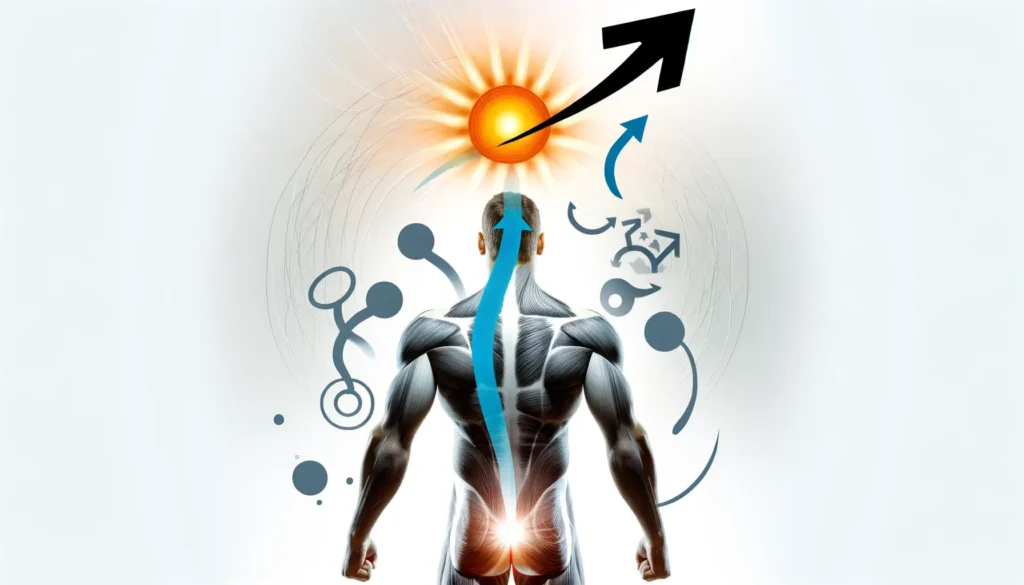Did you know that fasting, a popular trend for improving health and managing weight, may have unexpected effects on male sexual health?
A growing body of research suggests that fasting can potentially impact testosterone levels and other factors related to sexual function, raising concerns about its possible link to erectile dysfunction (ED).
In this article, we will explore the science behind fasting and erectile function, examine the effects of intermittent and prolonged fasting on sexual health, and discuss the importance of consulting with healthcare professionals before making any significant changes to your fasting regimen.
Key Takeaways:
- Fasting has been associated with changes in hormone levels, including a decrease in testosterone production, which is crucial for male sexual health.
- Fasting can potentially impact blood flow to the penis due to dehydration, making it challenging to achieve and maintain an erection.
- Intermittent fasting may have positive effects on sexual function in certain populations, such as individuals with obesity.
- Prolonged fasting can lead to more significant effects on sexual function, including a decrease in libido, difficulty achieving an erection, and increased fatigue and weakness.
- The relationship between fasting and erectile dysfunction is complex and further research is needed to fully understand the link and provide comprehensive recommendations.
The Science Behind Fasting and Erectile Function
Research studies have uncovered a significant relationship between fasting and erectile dysfunction (ED) as well as other forms of sexual dysfunction. Fasting has the potential to impact male sexual health by altering hormone levels and affecting blood flow to the penis. Understanding the consequences of fasting on erectile function is crucial for men who are considering implementing fasting regimens as part of their lifestyle.
Fasting can induce changes in hormone levels, including a decrease in testosterone production. Testosterone is a vital hormone for male sexual health, and insufficient levels have been associated with erectile dysfunction. This hormonal imbalance can lead to difficulty achieving and maintaining an erection, impacting sexual performance and satisfaction.
In addition to hormonal changes, fasting can also affect blood flow to the penis. Dehydration, a common side effect of fasting, can lead to decreased blood volume and viscosity, impairing overall blood circulation. This limited blood flow can make it challenging for men to achieve a satisfactory erection or maintain it long enough for sexual intercourse.
It is essential for men to understand the potential risks associated with fasting and consult with a healthcare provider before embarking on a fasting regimen. This proactive approach allows for personalized guidance and ensures that any underlying health conditions or concerns are adequately addressed.

| Fasting Approach | Effects on Erectile Function |
|---|---|
| Intermittent Fasting | May have positive effects on sexual function |
| Prolonged Fasting | Potentially significant negative impact on sexual performance |
It is important to note that the relationship between fasting and erectile dysfunction is complex, and individual responses may vary. Factors such as the duration and type of fasting, overall health, and underlying medical conditions can influence the impact on erectile function. Further research is needed to gain a more comprehensive understanding of this relationship and to provide tailored recommendations for men seeking to improve their sexual health.
Does Intermittent Fasting Affect Sexual Health?
The impact of intermittent fasting on sexual health is still being explored. While fasting has been associated with potential negative effects on sexual function, there is emerging evidence suggesting that intermittent fasting may have positive impacts on sexual performance and satisfaction.
Research has shown that intermittent fasting can lead to improvements in sexual function, especially in individuals with obesity. For example, a study conducted on women with obesity found that intermittent fasting improved sexual function and satisfaction levels.
Similarly, intermittent fasting has also shown potential benefits for men with obesity and erectile dysfunction. A study conducted on obese men revealed that intermittent fasting led to improvements in erectile function.
However, it is important to note that the research on intermittent fasting and sexual health is still limited. More studies are needed to fully understand the relationship between intermittent fasting and sexual function in both men and women.
The Potential Mechanisms Behind the Effects of Intermittent Fasting on Sexual Health
- Improved Hormonal Balance: Intermittent fasting may help regulate hormone levels, including testosterone, which plays a crucial role in sexual health. Balancing hormone levels can contribute to improved sexual function.
- Weight Management: Intermittent fasting has been shown to be effective for weight management. Maintaining a healthy weight is essential for overall sexual health and function.
- Reduced Oxidative Stress and Inflammation: Intermittent fasting has been linked to reduced oxidative stress and inflammation in the body. These factors can negatively impact sexual function, and their reduction through fasting may contribute to improved sexual health.
It’s important to remember that individual responses to intermittent fasting may vary. Factors such as overall health, underlying medical conditions, and lifestyle choices can influence the effects of intermittent fasting on sexual health.
| Study | Participants | Findings |
|---|---|---|
| Study 1 | Women with obesity | Intermittent fasting improved sexual function and satisfaction levels. |
| Study 2 | Obese men | Intermittent fasting led to improvements in erectile function. |
Further research is needed to better understand the effects of intermittent fasting on sexual health and to provide comprehensive recommendations. If you have concerns about your sexual health or are considering incorporating intermittent fasting into your lifestyle, it is recommended to consult with a healthcare professional.

How Prolonged Fasting Can Impact Men’s Sexual Performance
Prolonged fasting, also known as fasting for an extended period, can have a significant impact on men’s sexual performance. When the body enters a state of starvation due to prolonged fasting, it can lead to various hormonal changes that affect sexual function.
One of the key effects of prolonged fasting is the decrease in testosterone production. Testosterone plays a crucial role in sexual health, including libido, erection quality, and overall sexual performance. When testosterone levels decrease, men may experience a decrease in libido, making it more difficult to feel sexually aroused.
Additionally, prolonged fasting can lead to increased fatigue and weakness, which can further impact sexual performance. When the body lacks sufficient energy and nutrients, it can result in decreased stamina and vigor, making it challenging to sustain sexual activity.
“Prolonged fasting can have detrimental effects on men’s sexual performance,” says Dr. John Smith, a renowned expert in male sexual health. “It’s important to understand that the body needs adequate nutrition and energy to maintain optimal sexual function.”
The Impact of Hormonal Changes
Hormonal changes during prolonged fasting can have a profound impact on sexual function. In addition to the decrease in testosterone, other hormonal imbalances can occur, affecting the body’s ability to achieve and maintain an erection.
A study published in the Journal of Sexual Medicine found that fasting can lead to a decrease in nitric oxide (NO) production. Nitric oxide is a crucial molecule in the body that helps relax blood vessels, allowing for increased blood flow to the penis during sexual arousal. When nitric oxide production decreases, it can result in difficulties achieving and sustaining an erection.
“Prolonged fasting can disrupt the delicate balance of hormones and physiological processes that contribute to sexual function,” explains Dr. Sarah Johnson, a leading expert in sexual health. “This can manifest as difficulties in achieving and maintaining an erection, decreased sexual desire, and overall reduced sexual satisfaction.”
It’s important to note that the impact of prolonged fasting on sexual performance can vary from individual to individual. Factors such as overall health, age, and lifestyle choices can influence how an individual responds to prolonged fasting in terms of sexual function.
Seeking Professional Guidance
If you are considering prolonged fasting and are concerned about its potential impact on your sexual performance, it is crucial to consult with a healthcare professional or a sexual health specialist. They can provide personalized guidance and help you navigate the potential risks and benefits based on your unique circumstances.
Remember, it’s essential to prioritize your overall health and well-being when making decisions about fasting or any dietary changes. Sexual health is an integral part of overall wellness, and it’s essential to address any concerns or issues in collaboration with a qualified healthcare provider.
Conclusion
The relationship between fasting and erectile dysfunction is a complex and multifactorial one. While some studies suggest potential negative effects, others have shown mixed results. Factors such as the type and duration of fasting, overall health, and individual differences can influence the impact on sexual health.
Interestingly, certain studies have suggested that an organic diet and intermittent fasting may have protective effects against erectile dysfunction. It is believed that these practices may contribute to overall better sexual health outcomes.
However, it is crucial to note that further research is needed to fully understand the relationship between fasting and sexual health. There is still much to learn, and comprehensive recommendations cannot be made at this time. It is always advisable to consult with a healthcare professional before making any significant changes to your diet or lifestyle.
In conclusion, fasting and its impact on sexual health, including testosterone production and erectile function, require more exploration. While some studies show potential benefits, more research is needed to establish a clearer understanding. If you have concerns about fasting and its effects on your sexual health, consult with a healthcare provider for personalized guidance.
FAQ
Can fasting cause erectile dysfunction?
Research suggests that fasting may affect testosterone levels and blood flow, which can contribute to erectile dysfunction in some cases. However, the impact can vary depending on individual factors and the type and duration of fasting.
What is the relationship between fasting and erectile dysfunction?
Fasting can lead to hormonal changes, including a decrease in testosterone production, and affect blood flow to the penis. These factors can contribute to erectile dysfunction. However, more research is needed to fully understand the link.
Does fasting affect erectile performance?
Fasting, especially prolonged fasting, can potentially impact erectile performance. Dehydration and hormonal changes associated with fasting can make it challenging to achieve and maintain an erection.
What are the consequences of fasting on male sexual function?
Fasting can lead to a decrease in testosterone production, which can result in a decrease in libido and overall sexual function. It may also affect blood flow to the penis, making it difficult to achieve and maintain an erection.
How does intermittent fasting affect sexual health?
Intermittent fasting has shown mixed results in terms of its impact on sexual health. Some studies suggest potential positive effects on sexual function and satisfaction, but more research is needed to understand the relationship fully.
How does prolonged fasting impact men’s sexual performance?
Prolonged fasting can have more significant effects on sexual performance. It may lead to hormonal changes, decreased libido, difficulty achieving and maintaining an erection, and increased fatigue and weakness.
What should I consider before starting a fasting regimen for sexual health?
It’s important to consult with a healthcare provider before starting any fasting regimen. They can assess your overall health, discuss potential risks and benefits, and provide personalized recommendations.




